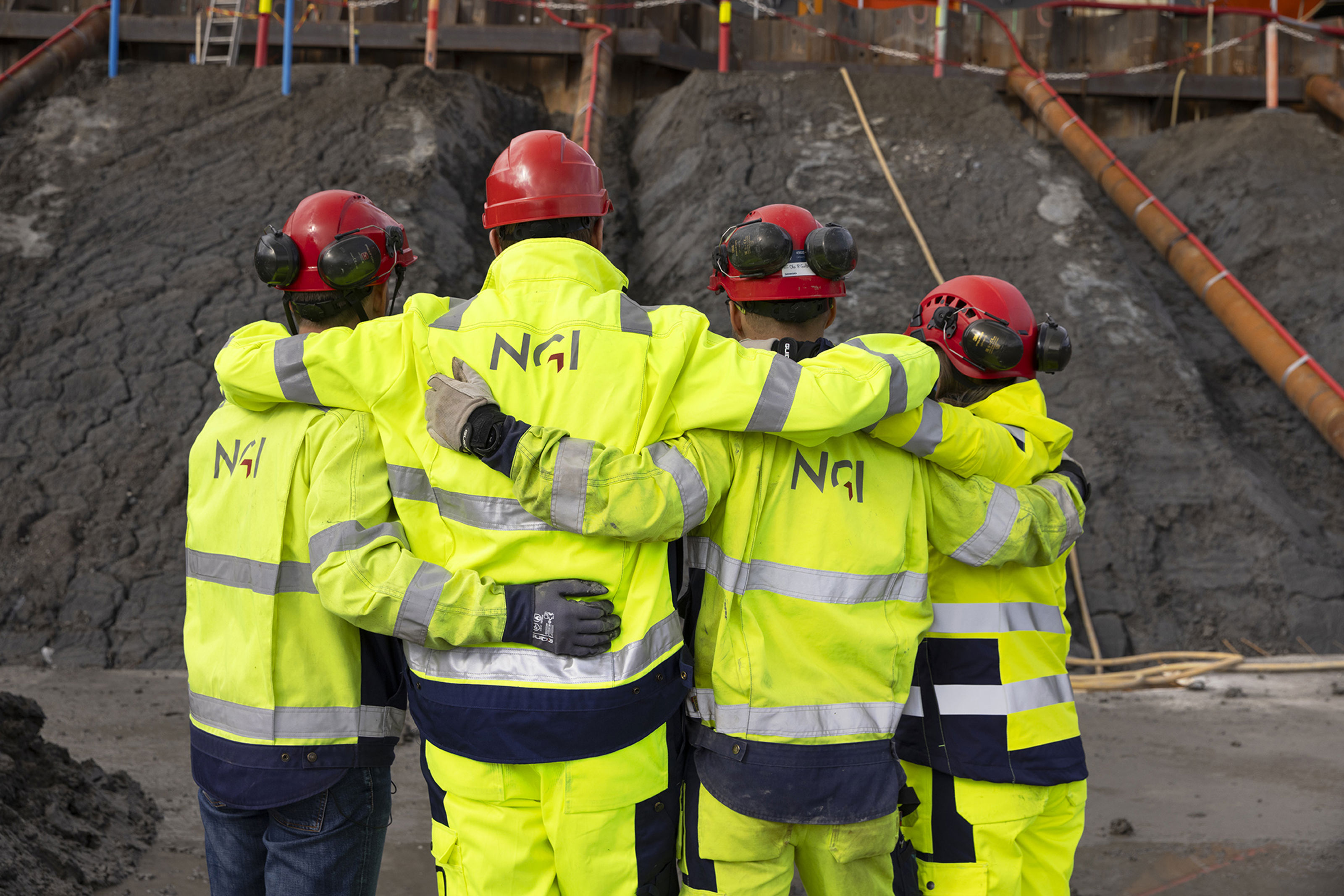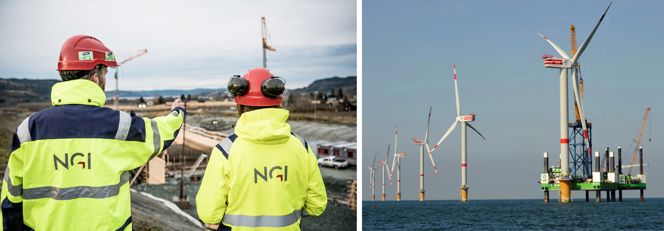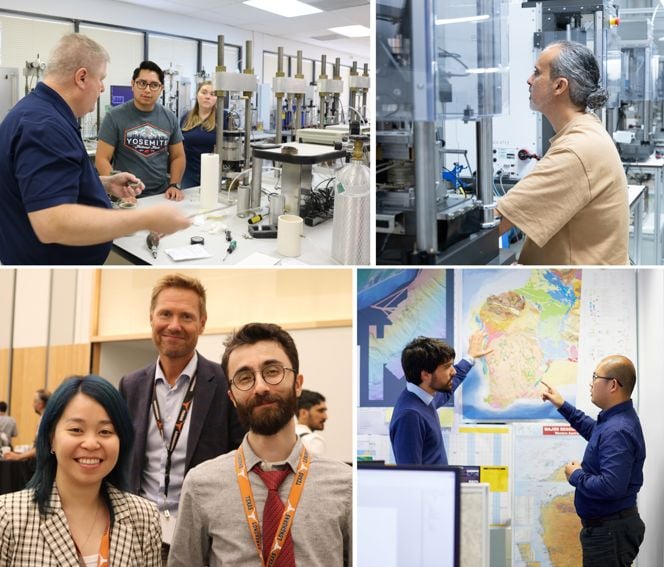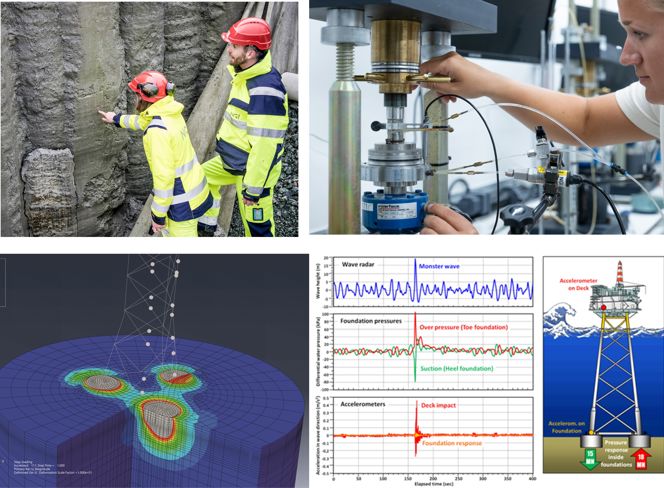About NGI
NGI – The Norwegian Geotechnical Institute – is an independent research centre in the field of geotechnical engineering and the engineering geosciences.

Research and consulting
Our societal mission is to contribute to solving societal challenges by advancing the geosciences and generating knowledge for building, living, and traveling on safe ground.

At NGI, research and consulting go hand in hand. Practical consulting work uncovers aspects and challenges that require research efforts. The results of our research can be immediately applied to consulting and design work and are published in international journals. We aim to be a bridge between academia, industry, and the public sector.
NGI combines geoscience knowledge and technology to develop smart and sustainable solutions in infrastructure on land and offshore, environmental technology, contaminated soil, and natural hazards such as landslides and avalanches. Our research helps address challenges related to climate, environment, energy, and societal safety.
NGI is partially funded by a state base grant through the Research Council of Norway, which accounts for about 5% of its revenue (2023). These funds are used to build long-term knowledge and competence. Additionally, NGI is an active contributor to EU research programs and collaborates closely with industry and businesses through projects in Norway and internationally.
An International Player
Knowledge, research, and innovation transcend borders. Effective solutions require international expertise and collaboration. For this reason, NGI has always maintained an international environment and a global professional perspective.

Our international presence through offices, exchanges, recruitment, and participation in research and consulting projects strengthens our ability to fulfill our societal mission. NGI is globally recognized as a center of excellence in geotechnics and engineering-related geosciences.
NGI has offices in Norway (Oslo, Trondheim, and Tromsø), the USA (Houston and Boston), and Australia (Perth). We also operate internationally renowned laboratories in Oslo, Houston, and Perth.
Understanding Materials, Analysis, and Monitoring
Geomaterials are far more complex than most other engineering materials. NGI is among the best at mapping and understanding soil conditions for the various geoscientific challenges we encounter.

We use three methods to address geoscientific challenges and problems:
- Understanding materials through field and laboratory investigations
- Analysis and calculations
- Measurement and monitoring of behavior
These three methods are continuously applied to develop our expertise. Together, they form the core of NGI’s operations.
NGI was formally established on January 1, 1953, under the Norwegian Technical-Scientific Research Council (NTNF). In 1985, it became an independent foundation. On January 1, 2024, the research and consulting operations were transferred to Norges Geotekniske Institutt AS, a limited liability company wholly owned by the NGI Foundation.